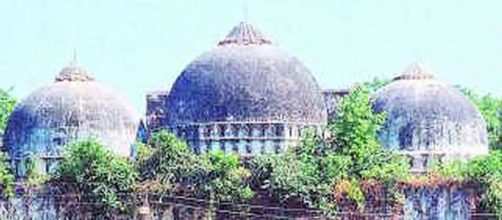Today was a historic day in the history of India. A dispute which had been simmering since 1885 was finally solved. The dispute was over a Masjid often called the Babri Masjid, which was supposed to have been built by a general of the Mughal emperor Babur. It had been alleged that the mosque was built after razing to the ground a Hindu temple which Hindus believed is the birthplace of the god Ram. This was in 1528. India Today has reported that a constitutional bench of the Supreme Court consisting of five judges headed by the Chief Justice Gogoi has ruled the land on which the Babri Masjid stood must be handed over to a trust.
This trust will be formed by the government within 3 months and oversee the construction of a Ram temple.
1992 demolition
Hindu parties to the dispute had filed a case in 1947. The case lingered on for 72 years. In 1992 Hindu fanatics demolished the Masjid leading to widespread Hindu -Muslim riots in the country. Mark Tully of the BBC has been quoted by the Huffington Post on this riot. In 2011 the Allahabad High Court had given a judgment that the disputed land be divided between 3 parties.
Supreme Court verdict
The Supreme Court however set aside the Allahabad High Court judgment as untenable and after a detailed hearing by 5 judges including one Muslim judge have given a unanimous verdict that the land on which the Babri Masjid stood must be handed over to a trust for construction of a Hindu temple.
The constitutional bench also asked the government to allot five acres of land to the Muslim community for construction of a mosque.
The curtain has come down on this long dispute. In many ways, this is a historic judgment. A problem that had been festering for over a century has now been solved. Some in the Muslim community are not happy with this verdict but the court has said that it is clearly established that there was a Hindu temple was razed down and a Mosque built on it. This was during the reign of the emperor Babur, the first Mughal emperor of India.
Belief
The temple stood on a piece of land at Ayodhya which was the capital of the kingdom of God Ram and finds frequent mention in the Ramayana.
Most Hindus believe that Ram was born in Ayodhya, though there is no direct evidence available about this.
The Supreme Court has given a measured judgment. A contentious problem has been solved. Before the judgment was delivered the chief justice had asked the Director-General of Police in Uttar Pradesh to beef up security to prevent any communal backlash. It appears that most people in India have accepted the judgment as the constitutional bench also had justice Nazeer, a Muslim. This comes close on the heels of an attempt to solve the Kashmir problem by abrogating Article 370.
Hindu temple
The deck is now clear for the construction of a Hindu temple. Ayodhya is one of the holiest places in the Hindu psyche and is regarded by many as the birthplace of the god Ram.
The Supreme Court has now negated the effect of the rule of Emperor Babur. The Muslim case was also weakened as no prayer had been conducted since 1931. That was the time when the Raj was omnipotent in India.


